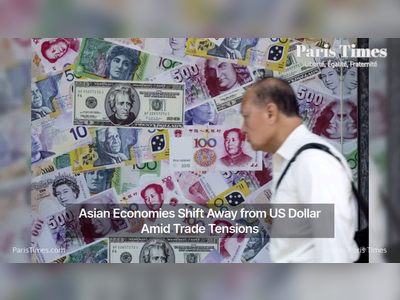
Parliamentary Inquiry Commissions: Political Divergence and Role Confusion
Investigations into the Bétharram affair and France's electoral organization reveal politicization and procedural inconsistencies.
Parliamentary inquiry commissions investigating the Bétharram affair and the organization of elections in France have highlighted the politicization of a traditionally oversight-focused practice.
Central figures in the current controversy include François Bayrou and Pierre-Édouard Stérin.
Stérin, a businessman with aspirations to cultivate a new political elite through his project Périclès, faces potential penalties of two years imprisonment and a fine of €7,500 for refusing to appear in person before the inquiry committee twice.
He cites safety concerns due to multiple death threats as the reason for his absence, prompting his lawyer, Me Cailliez, to file a criminal complaint against unidentified individuals in the Paris judicial court.
The inquiry's president, Deputy Thomas Cazenave from Gironde, acknowledged Stérin's absence and has escalated the matter to the prosecutor of the Republic.
Critics within Stérin's circle, including Arnaud Rérolle, co-founder and CEO of Périclès, argue that Stérin's offer to testify via video conference should have been accepted, questioning the committee's intentions regarding substantive inquiry versus media spectacle.
The current use of parliamentary inquiries has seen a significant increase in recent years, involving a diverse range of individuals—from industrial leaders to political figures and media personalities.
Initially established under the 1958 ordinance governing parliament's functioning, these inquiries were intended to facilitate government oversight.
However, their scope and purpose have expanded, raising concerns about their effectiveness.
Legal expert Anne-Marie Le Pourhiet notes that the government has largely ceased submitting legislation, resulting in a perceived legislative vacuum where inquiry commissions are frequently employed without clear objectives.
Since the constitutional revision of 2008, parliamentary inquiry commissions have attained constitutional status.
Legal scholars Nicolas Baverez and Vincent Brenot contend that the ability of political groups to demand inquiries has led to investigations that often lack a connection to the public interest.
This trend has prompted critiques from legal professionals regarding the preservation of defendants' rights, suggesting that inquiry commissions are starting to resemble inquisitorial tribunals rather than tools for government accountability.
Public testimonies from figures such as François Bayrou reveal a confrontational political climate within these inquiries, further diminishing the focus on factual accuracy.
In comparison, witnesses face severe penalties for perjury, with fines and imprisonment significantly higher than those associated with typical infractions.
The politicization of these inquiries often results in questioning that strays far from the initial focus, as seen during Rérolle's lengthy interrogation, which included inquiries about sensitive topics unrelated to the committee’s stated agenda.
The politicized nature and increased scrutiny associated with these inquiries highlight significant transformations within France's parliamentary procedures and their role in contemporary political discourse.
Central figures in the current controversy include François Bayrou and Pierre-Édouard Stérin.
Stérin, a businessman with aspirations to cultivate a new political elite through his project Périclès, faces potential penalties of two years imprisonment and a fine of €7,500 for refusing to appear in person before the inquiry committee twice.
He cites safety concerns due to multiple death threats as the reason for his absence, prompting his lawyer, Me Cailliez, to file a criminal complaint against unidentified individuals in the Paris judicial court.
The inquiry's president, Deputy Thomas Cazenave from Gironde, acknowledged Stérin's absence and has escalated the matter to the prosecutor of the Republic.
Critics within Stérin's circle, including Arnaud Rérolle, co-founder and CEO of Périclès, argue that Stérin's offer to testify via video conference should have been accepted, questioning the committee's intentions regarding substantive inquiry versus media spectacle.
The current use of parliamentary inquiries has seen a significant increase in recent years, involving a diverse range of individuals—from industrial leaders to political figures and media personalities.
Initially established under the 1958 ordinance governing parliament's functioning, these inquiries were intended to facilitate government oversight.
However, their scope and purpose have expanded, raising concerns about their effectiveness.
Legal expert Anne-Marie Le Pourhiet notes that the government has largely ceased submitting legislation, resulting in a perceived legislative vacuum where inquiry commissions are frequently employed without clear objectives.
Since the constitutional revision of 2008, parliamentary inquiry commissions have attained constitutional status.
Legal scholars Nicolas Baverez and Vincent Brenot contend that the ability of political groups to demand inquiries has led to investigations that often lack a connection to the public interest.
This trend has prompted critiques from legal professionals regarding the preservation of defendants' rights, suggesting that inquiry commissions are starting to resemble inquisitorial tribunals rather than tools for government accountability.
Public testimonies from figures such as François Bayrou reveal a confrontational political climate within these inquiries, further diminishing the focus on factual accuracy.
In comparison, witnesses face severe penalties for perjury, with fines and imprisonment significantly higher than those associated with typical infractions.
The politicization of these inquiries often results in questioning that strays far from the initial focus, as seen during Rérolle's lengthy interrogation, which included inquiries about sensitive topics unrelated to the committee’s stated agenda.
The politicized nature and increased scrutiny associated with these inquiries highlight significant transformations within France's parliamentary procedures and their role in contemporary political discourse.











